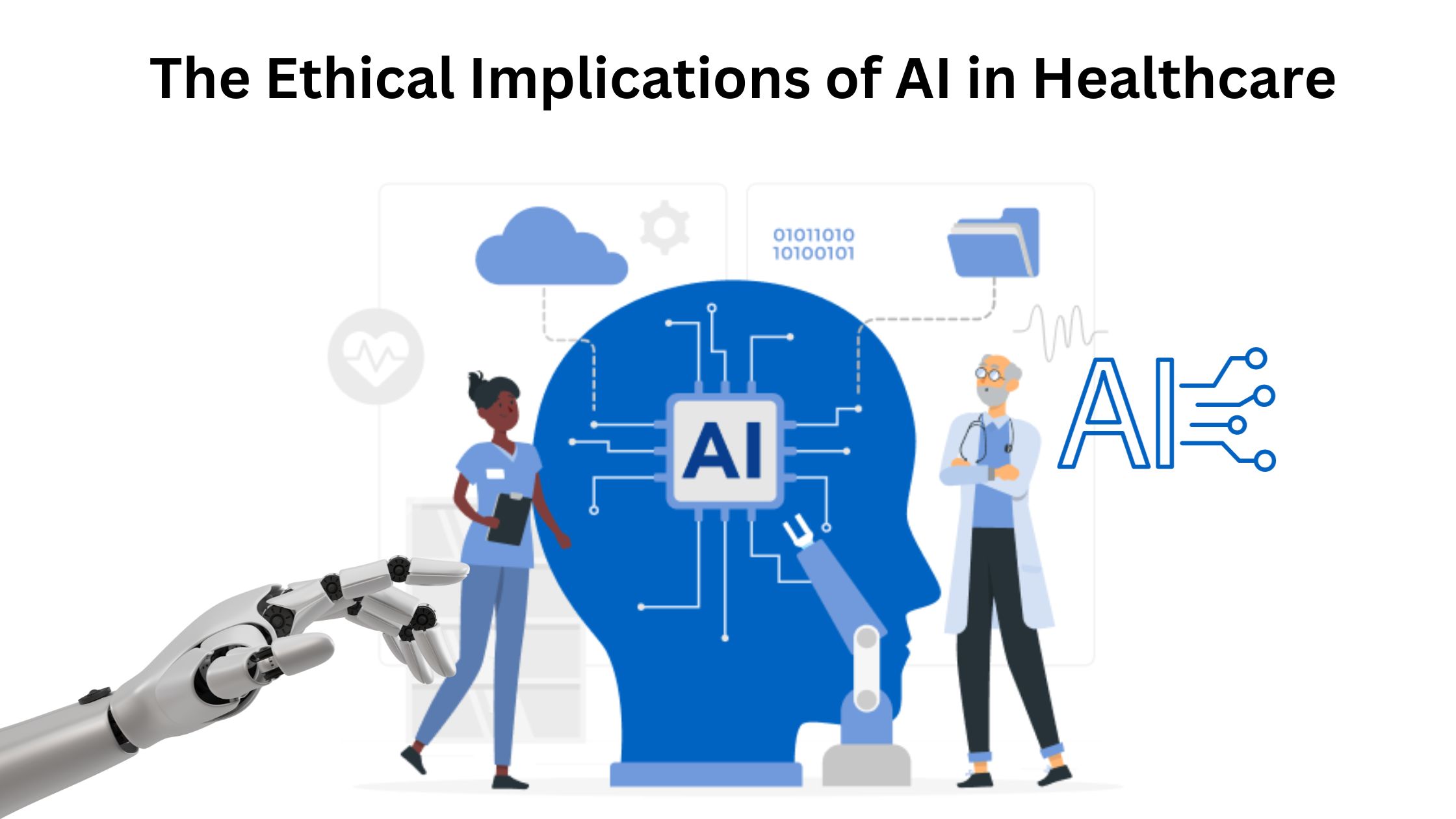
Introduction
Artificial Intelligence (AI) is revolutionizing various sectors, and healthcare is no exception. From diagnostics to treatment plans, AI is making healthcare more efficient and effective. However, the integration of AI in healthcare also raises several ethical concerns that need to be addressed. This blog aims to explore the ethical implications of using AI in healthcare.
The Rise of AI in Healthcare
The integration of Artificial Intelligence (AI) into healthcare has been nothing short of transformative. Over the past few years, AI technologies have made significant strides, moving from experimental phases to practical, real-world applications. These advancements are not just confined to any single area of medicine but span across diagnostics, treatment planning, drug formulation, and even administrative tasks.
Machine learning algorithms, a subset of AI, are particularly adept at parsing through vast amounts of data to identify patterns or anomalies. This capability is invaluable in fields like genomics, where the sheer volume of data can be overwhelming for human analysts. AI’s role in predictive analytics is another area where it shines, offering healthcare providers the ability to forecast outbreaks, patient admissions, and other important trends with remarkable accuracy.
Moreover, AI-powered chatbots and virtual health assistants are providing new ways for healthcare providers to interact with patients, offering instant medical advice and helping manage chronic conditions. Telemedicine, powered by AI algorithms, is breaking down geographical barriers, providing medical consultations to people in remote areas.
However, as AI continues to permeate the healthcare sector, it brings along a host of ethical considerations that need to be diligently addressed. From data privacy to algorithmic bias, the ethical implications are as expansive as the technology itself.
Ethical Concerns
Data Privacy
One of the most significant ethical concerns is data privacy. Medical data is sensitive, and the use of AI algorithms to analyze this data poses a risk of unauthorized access or data breaches.
Solution: Ensuring robust encryption and secure data storage can mitigate this risk. It’s crucial to use AI services that comply with data protection regulations.
Informed Consent
Patients must be informed and consent to the use of AI in their healthcare. The use of AI should not bypass the patient’s right to understand how their data will be used.
Solution: Transparency is key. Patients should be fully informed about how AI will be used in their healthcare and given the option to opt-out.
Bias and Fairness
AI algorithms can inherit biases present in their training data or their designers. This can result in unfair or even harmful medical advice.
Solution: Using diverse and representative training data can help. It’s also essential to continually monitor and update AI algorithms to ensure they are as unbiased as possible.
Accountability
If an AI system makes an incorrect diagnosis or treatment suggestion, who is responsible? The issue of accountability is still a grey area in the ethical discussion surrounding AI in healthcare.
Solution: Clear guidelines and protocols should be established for accountability in cases where AI is used.
Case Studies
AI in Radiology
Artificial Intelligence has made a significant impact in the field of radiology. Algorithms are now capable of identifying abnormalities in X-rays, MRIs, and CT scans with a high degree of accuracy. These AI systems are trained on thousands of images, allowing them to recognize patterns and anomalies that may be difficult for a human eye to catch. However, the technology is not without its challenges. There have been instances where AI algorithms failed to identify critical issues, which were later caught by human radiologists. These incidents serve as a reminder that while AI can assist, it cannot yet replace human expertise.
AI in Drug Discovery
The pharmaceutical industry is another area where AI is making waves. Drug discovery is a long and costly process, often taking years and billions of dollars to develop a single drug. AI has the potential to expedite this process significantly. Machine learning algorithms can analyze complex biochemical interactions, making it easier to identify potential drug candidates. These algorithms can also predict how different drugs will interact with targets in the body, providing valuable insights that can guide researchers. However, the algorithms are only as good as the data they are trained on. Biases or inaccuracies in the training data can lead to the development of ineffective or unsafe drugs. Therefore, it’s crucial to ensure the quality and diversity of the data used to train these algorithms.
Conclusion and Future Outlook
The integration of Artificial Intelligence (AI) into healthcare is undeniably groundbreaking, offering innovative solutions that have the potential to revolutionize medicine as we know it. However, as we continue to push the boundaries of what AI can achieve in healthcare settings, it becomes increasingly important to address the ethical implications that accompany this technological advancement.
Transparency in how AI algorithms work, robust data privacy measures, and clear accountability structures are not just optional but essential components that need to be integrated into any AI healthcare system. These ethical considerations serve as the foundation upon which trust in AI’s healthcare applications can be built. Without this trust, the full potential of AI in healthcare may never be realized.
Moreover, as AI continues to evolve, so will its ethical implications. Ongoing research and dialogue among healthcare providers, technologists, ethicists, and policymakers will be crucial in navigating the ethical landscape of AI in healthcare. This collaborative approach will not only help in identifying and addressing new ethical challenges but also in leveraging AI’s capabilities for the greater good.
For organizations and healthcare providers looking to navigate these complex ethical waters while implementing AI, specialized services like Aiveda’s AI services offer ethical and effective healthcare solutions tailored to meet these challenges.